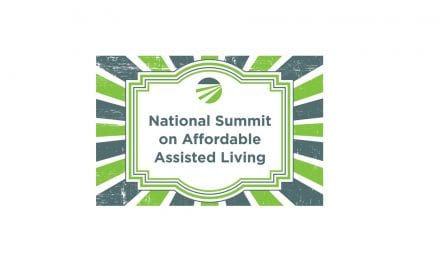By Jack Cumming
Executive directors, regional executives, chief operating officers, and CEOs are central in the story of whether senior living enterprises succeed or fail, and yet, we give little attention to how to prepare for leadership. There are thousands of books on leadership, and reading is central to leading, but now might be the time to bring back the content-rich, basic-knowledge CASP program (CASP = certified aging services professional).
Open to All
The CASP program was initiated in 1986 by what is now LeadingAge. Unlike many college programs, CASP qualification was affordable. It welcomed everyone who wanted to learn about senior living, senior housing, and aging services. Here are examples of the kinds of people who were drawn into senior living through the ready availability of the CASP program.
- A high school graduate seeking to demonstrate ability and knowledge for advancement in senior living could complete an advanced grad school level program.
- A college senior with an English or history major wanting to demonstrate ability beyond mere human understanding could do so by earning the CASP designation. She or he was then ready to hit the ground running in a senior living management trainee program.
- A woman or man, 40-ish, burned out in a dull job and wanting more life meaning, could prove qualification through CASP.
- A board member wanting to become a knowledgeable director could gain the know-how needed to better advise the executive leadership.
- Residents wanting to support the industry that gives them a safe haven could gain the know-how to be a constructive volunteer resource.
The New Curriculum
Eventually, long after the 1986 beginning, the University of North Texas, which had long had a strong gerontology program, took over from LeadingAge. In 2010, Amy Allen, with the support of 166 industry volunteers and experts, prepared a fresh curriculum. The involvement of so many industry leaders gave it tremendous depth and breadth of perspective.
After just a few years, UNT decided their overhead as a university was too much, and they returned the program and its assets (the curriculum) to LeadingAge. That’s where it ended. Until now.
Breadth, Depth, and Mastery
The curriculum was extraordinarily broad. A listing of topics illustrates this better than any description. The CASP program required successful completion of three graduate school level courses. Here goes (hang onto your hat):
Course I: Administering the Senior Living Community
- Governance and Strategic Planning
- Leadership and Administration
- Human Resource Management
- Legal Issues; Risk Management
- Fair Housing
- Marketing
Course II: Management and the Aging Resident
- The Aging Society
- Biological Aspects of Aging
- Social Aspects of Aging; Psychology of Aging
- The Continuum of Care and Social Service Networks
- Hospitality and Guest Services
- Integrating Gerontological Principles With Management
Course III: Managing the Financial and Physical Environment
- Financial Overview
- The Budgeting Process
- Trends Monitoring; Development Overview
- The Facility Environment; Dining Services
- Future Trends and the Aging Professional
The learning was challenging. The curriculum was accessible 1) through reading (three large binders of material), 2) alternatively through online resources that provided a progressive learning platform, or 3) through in-person lectures and video resources. Those materials must still be available somewhere at LeadingAge or with Amy Allen. I know that I frequently refer to the three binders. CASP is a valuable resource. It would not be difficult to bring it up to date.
A Lifelong Commitment
An on-demand examination program proved mastery. There were plans to allow graduates, who qualified for the CASP designation, to follow up with a master’s thesis to earn a master’s degree. Completion demonstrated broad mastery of “excellence in the field of housing and services for the elderly.” It was solid. It was rigorous. Its abandonment is an industry loss.
Moreover, the CASP program created a lifelong process of continuous learning, thinking, and innovation. There was a Summer Institute every year at which participants and graduates could come together for in-person learning, socialization, and networking. It was a four-day time of learning with industry experts typically leading one- to two-hour modules. There was also a thought-provoking case study with which attendees wrestled in breakout groups, later reporting back to the group.
Perhaps most significantly, there was a continuing education requirement that underscored the lifelong learning intention. Graduates and current students gathered at LeadingAge meetings to network, share ideas, and follow emerging industry trends. The CASP program was the complete package for professional excellence. Many graduates today still value their participation in the program.
Other Programs
This is not to disparage other programs like the Larry Minnix Leadership Academy. That program is limited to people already working in the industry. There can be only one participant from an employer. There are no exams. It is limited solely to employees of not-for-profit operators. Only those applicants who are accepted can participate. In contrast, CASP was open to everyone; it emphasized expertise as much as confidence building, and it opened senior living to the world.
Dee Pekruhn and her LeadingAge associates also make available a vast array of educational materials on the LeadingAge website, including a monthly program of current information. This effort complements and supplements the learning opportunities available at LeadingAge meetings.
CASP meets a different, more basic purpose from that of the Larry Minnix Academy and the LeadingAge continuous learning opportunities. All three approaches are valid. They all aim at improving the resident/older adult experience. It can enrich LeadingAge’s educational resources to revive the CASP program to complete an educational trifecta.








